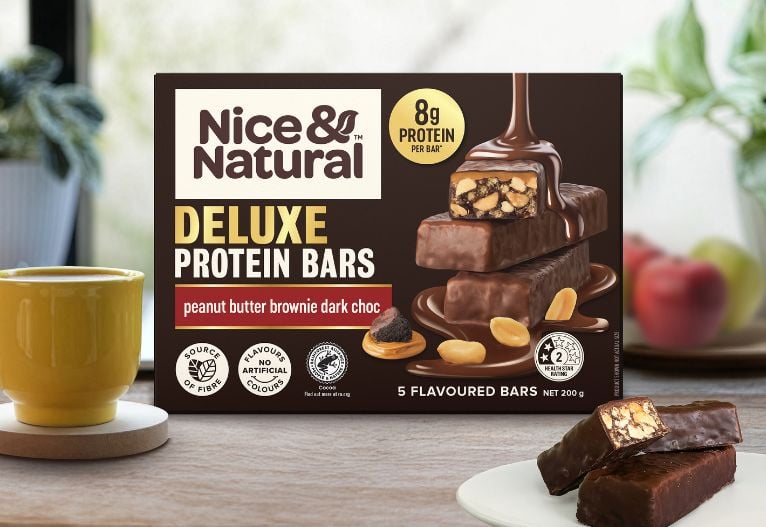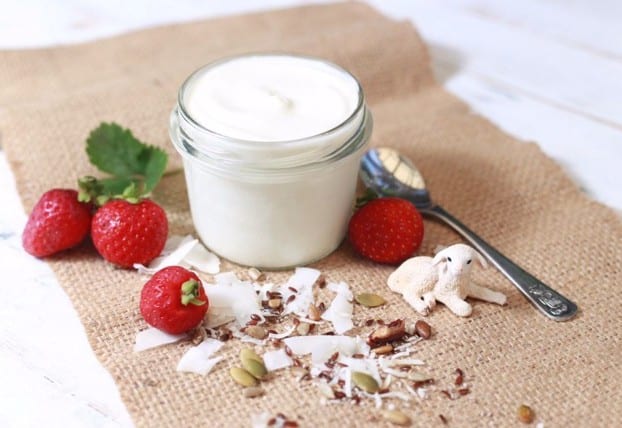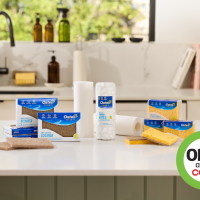Yoghurt is healthy, right? Well not always, says paediatric nutritionist, Mandy Sacher. Let’s find out which yoghurts are the best for your family.
Speaking about dairy at my workshops always raises lots of questions: How much dairy should my child be eating or drinking? Is low fat or full fat/whole milk best? Why is organic a better option?
Confusing
These days our supermarket shelves are laden with so many options, it can be really confusing for parents to pick out the best quality dairy products for their children.
But more and more we are learning that the closer food is to its pure, natural form the better, and yoghurt is no exception. Most yoghurts aimed at children are high in added sugars. One squeezie yoghurt can contain up to five teaspoons of sugar, and in my practice I see children who consume two to three squeezie yoghurts a day.
Introduce Natural Yoghurt Early On
Plain natural yoghurt, if introduced early, can be one of the best ways to stretch your child’s flavour range to include sour foods. Even if your child already prefers sweetened yoghurt, encourage them to try natural yoghurt with a drizzle of raw honey or pureed fresh fruit, or add natural yoghurt to smoothies in place of milk.
Mandy’s tips for choosing yoghurt:
- Choose organic natural, full cream yoghurts or natural preservative-free yoghurts.
- Choose yoghurts with added probiotics to promote gut health.
- Try natural yoghurts made with different milks and also vegan versions like coconut yoghurt without any additives.
Below is a breakdown of most of the different types of yoghurt you will come across on the shelves and my picks for the healthiest ones to choose.
SHEEP’S MILK YOGHURT
This is a rich and creamy full-flavoured yoghurt. I often recommend weaning babies onto this yoghurt due to the fact it’s easier on the digestive system and high in fats which babies need.
GOAT’S MILK YOGHURT
This is a full-flavoured yoghurt with a slightly more pronounced gamey flavour. High in calcium, it may be easier to digest for some children. The best way to ensure your child likes this yoghurt is to introduce it from when they are babies, or for older children add it to homemade smoothies or frozen popsicles.
WHOLE MILK YOGHURT
The richest of the plain yoghurts, wholemilk yoghurt contains 6 to 8 grams of fat per cup. Some brands of wholemilk yoghurt, called farm-style, come with a layer of yoghurt cream on top.
GREEK YOGHURT
A thicker, creamier type of yoghurt, which has had the liquid removed so will have higher concentrations of fat and protein. Greek yoghurt is traditionally strained and has the whey removed, resulting in a thicker yoghurt. Always choose natural versions over ones with added sugar or fruit preserves.
NATURAL YOGHURT
No added flavours, sweeteners or preservatives.
FLAVOURED YOGHURTS
Added flavours, sugar, fruit, fruit concentrates (fructose) – it’s best to avoid starting your children on these from a young age. Rather add a teaspoon of raw honey and pureed or chopped fresh fruit to natural yoghurt.
POT SET
The ingredients used to make the yoghurt (milk and cultures) are added directly to the pot where it sets, removing the need for added thickeners or stabilisers.
LABNEH (LABNE)
This thick Middle Eastern yoghurt ‘cheese’ is smooth and creamy like sour cream. It is often eaten with a drizzle of olive oil and chopped mint, and served with pita bread.
SOY YOGHURT
Made from soy milk, this product has the texture and consistency of dairy yoghurt. It’s rare, however, to find a commercially available soy yoghurt free from added sugars and flavours. This is my least favourite alternative.
COCONUT YOGHURT
Made from coconut milk, it’s fast gaining popularity. It’s an excellent choice for children with dairy allergies or intolerances, however many of the quality brands available in health food stores come with a hefty price tag. If you want to make your own coconut yoghurt see our recipe on www.wholesomechild.com.au. Due to the coconut flavour, it is most often sweetened. My sweetener of choice is stevia, monkfruit or other fruits.
KEFIR
Kefir is my number one go-to dairy product for kids, although it can also be dairy free. This cultured yoghurt-like drink is naturally lower in lactose and provides greater natural probiotic properties for re-establishing healthy gut flora than yoghurt, and can help improve digestion in kids. It is a great choice for anyone with lactose intolerance, as lactic acid bacteria have already got to work digesting the lactose for you. As it ferments, it develops a complex matrix of beneficial microorganisms including yeast. It’s also rich in protein, calcium and B-vitamins. Look for it in health food stores or make your own using kefir grains.
3 easy ways to improve the quality of your child’s yoghurt
If your child is already eating sweetened yoghurts and squeezies, the following tips will help to make their yoghurt healthier:
- Blend your child’s favourite sweetened yoghurt with natural yoghurt. Start at a ratio of 3:1 and slowly decrease the sweetened yoghurt and increase the natural yoghurt. This simple step will reduce sugar by up to 50%.
- Let your child choose reusable squeezie pouches and fill with natural yogurt blended with a small amount of honey, pureed fruit or my apricot and cinnamon compote.
- Buy a small container and let your child decorate it with stickers. Blend natural yoghurt and their favourite fruit together, place in the container and freeze overnight. Remove from the freezer in the morning and by mid-morning it should be nice and slushy.
To learn more about Mandy Sacher please visit the Wholesome Child website. Her book “Wholesome Child: A Complete Nutrition Guide and Cookbook” is available to purchase online and through iTunes, and you can connect with Mandy on Instagram and Facebook.





















-

-
-
ella12 said
- 15 Jan 2019
-

-
-
mom93821 said
- 31 Dec 2018
-

-
-
tessie said
- 08 Nov 2018
-

-
-
mom19782016 said
- 07 Nov 2018
-

-
-
rovermum said
- 07 Nov 2018
-

-
-
rachel1970 said
- 07 Nov 2018
-

-
-
MisChip said
- 06 Nov 2018
-

-
-
mom101628 said
- 06 Nov 2018
-

-
-
mom74005 said
- 06 Nov 2018
-

-
-
Ellen said
- 02 Nov 2018

-

-
-
mom90758 said
- 01 Nov 2018
-

-
-
mom112217 said
- 01 Nov 2018
-

-
-
mom160421 said
- 01 Nov 2018
-

-
-
becstalou said
- 01 Nov 2018
-

-
-
Cookfromscratchmum said
- 01 Nov 2018
Post a comment3:57 pm
1:02 pm
12:38 pm
11:29 am
11:05 am
6:20 am
9:53 pm
9:31 pm
8:57 pm
7:56 am
5:58 pm
2:52 pm
1:28 pm
12:34 pm
12:30 pm
To post a review/comment please join us or login so we can allocate your points.